By: Dr. W. Scott West, Chief Medical Officer, Nashville NeuroCare Therapy
What is stress?
April is national stress awareness month. According to NIMH, stress is the “physical or mental response to an external cause, such as having a lot of homework or having an illness. A stressor may be a one-time or short-term occurrence, or it can repeatedly happen over a long time.” Unlike anxiety, stress tends to go away once a situation or the external stressor is resolved.
Stress is normal. Everyone experiences it and, while often uncomfortable, it’s not always bad. It’s an important and healthy part of being human. As explained in the Harvard Business Review, “stress shows us that we care; that the stakes matter.” If you’re stressed over an assignment, a relationship dynamic, or a creative project, it’s because it matters to you. Just like nerves at the start line of a race or for a first date, stress can help you rise to an occasion. This realization that not all stress is out to get you “unleashes positive motivation—because deep down we know that things that are important shouldn’t always come easy” (HBR).
Stress can be good for us.
After all, our stress response has evolved for a reason. It’s not here to kill us, but to help us meet the demands of our lives. According to Dr. Brianna Chu, DO, “stress will activate the sympathetic nervous system which in turn activates the adrenal glands . . . [and] affects the musculoskeletal system by tensing up the muscles as a way of guarding against pain and injury.” If a child is trapped under a car, a surge of adrenaline and cortisol is exactly what we need to withstand and overcome the crisis.
Learning to manage and work with your stress has been proven to make us stronger and more resilient in the long run. Stanford psychologist Kelly McGonigal explored that embracing stress can often be more beneficial to us than simply reducing stress. McGonigal’s research has shown that “stress leaves an imprint on your brain that prepares you to handle similar stress the next time you encounter it. Psychologists call the process of learning and growing from a difficult experience stress inoculation.” (Stanford News). Shifting your perspective from stress always being bad to something positive that can help you grow and even make life more meaningful is a great first step to becoming more adaptive and resilient in your day-to-day.
When stress becomes burnout.
Of course, there comes the point when stress is more detrimental than helpful. Our stress response is designed to carry us through a moment and then resolve once the threat is handled. However, if we are experiencing a stress state for extended periods, our bodies become overwhelmed, and our energy stores deplete. This is happening more and more in today’s workplaces, resulting in burnout. You can learn more about burnout and how to regulate it here and here.
As stress levels reach an all-time high for many Americans, there are some innovative tools available to help us learn to manage our stress and resolve our stress cycles. Like stress itself, our smartphones and devices can be sources of distraction and overwhelm, or they can be tools that enhance our lives. With a rising availability of apps designed to support mental health, you can practice ways to manage your stress from the convenience of the palm of your hand.
Meditation Apps – Calm and Headspace
According to the APA, “mindfulness-based therapy [is] especially effective for reducing stress, anxiety and depression.” Practicing mindfulness through meditation has never been more accessible than now, thanks to apps that lead you through guided meditations and breathing exercises designed to help relieve stress and regulate your nervous system.
Calm and Headspace are two popular meditation apps. Both offer beautiful, easy-to-use interfaces and meditations suitable for any experience level. If you could use some help learning to embrace mindfulness, either of these two apps would be a great place to start.
Mood Tracker Apps – Moodfit and Worry Watch
While not a suitable replacement for diagnosis or professional treatment, “mood-tracking tools can help you monitor how your mood varies and aid you in better understanding stressors and triggers that can cause the negative emotions that you experience” (Very Well Mind). Tracking your mood can help you get to know yourself better and care for yourself better as a result.
Moodfit and Worry Watch are two celebrated mood tracking apps that can help you get to know what makes you stressed and how you can ground yourself through the discomfort.
Stress vs. Anxiety.
Of course, not all stress is just stress. Suppose you’re noticing that even after an external stressor resolves, you can’t shake overwhelming feelings of dread and apprehension. In that case, chances are you’re dealing with anxiety. Anxiety disorders are real mental illnesses that deserve treatment, and it is often comorbid (or co-occurring) with depression.
Treat Burnout, Anxiety, and Depression with TMS Therapy.
If you think that you or someone you love may be experiencing depression and anxiety, there is hope. Successful treatments exist, and help is out there. You have probably heard of cognitive-behavioral therapy, also known as talk therapy, and medication, but have you heard of TMS Therapy?
TMS Therapy, short for Transcranial Magnetic Stimulation, is an innovative therapy that treats depression by using magnetic-pulse technology to stimulate areas of the brain that have low metabolic activity, or, in other words, aren’t working to their full potential.
We’ve learned that the brains of people with depression and the brains of people without depression look and function differently. Most notably, centers that regulate mood aren’t as active in a depressed brain. TMS Therapy helps encourage your brain to heal itself by building and strengthening the neural networks that help control your mood and behavior. This offers real, lasting relief from depression.
At Nashville Neurocare Therapy, we specialize in TMS Therapy for depression treatment. While “stimulating the brain with magnets” might sound a little intimidating, TMS Therapy is not to be confused with electroconvulsive therapy (ECT aka “shock therapy”). TMS Therapy is completely comfortable and safe, and perfectly natural. Plus, TMS Therapy is 100% drug-free, so there are no adverse side effects commonly associated with antidepressants. Though it’s a lesser-known therapy, most private and public health insurances cover TMS Therapy, and the American Psychiatric Association even recommends TMS as an alternative to antidepressants if your medications aren’t working for you. If you aren’t finding relief from your depression through talk therapy or medication alone, talk to your doctor about TMS Therapy. Treatment for depression is not one size fits all, and there is hope for you. If you’d like to learn more about TMS Therapy and how it could help you or somebody you love, feel free to request a consultation with our office. We’d love to see if TMS Therapy is a good fit for your path to healing.
About the Author: Dr. W. Scott West
Nationally recognized, board-certified psychiatrist, Dr. W. Scott West, blazed the trail for TMS therapy in Tennessee as the first physician to offer this advanced technology in 2010. With 30+ years experience in clinical depression, Dr. West leads the Nashville Neurocare team.
- Board Certified Psychiatrist
- Specialty: Certified TMS Psychiatrist since 2010
- Diplomate: The American Board of Psychiatry and Neurology
- Distinguished Fellow: American Psychiatric Association
- Residency: Vanderbilt University, Hospital Department of Psychiatry
- Medical School: University of Tennessee, Knoxville, Center for the Health Sciences
- Hospital Affiliations: Vanderbilt University Hospital, St. Thomas Hospital


